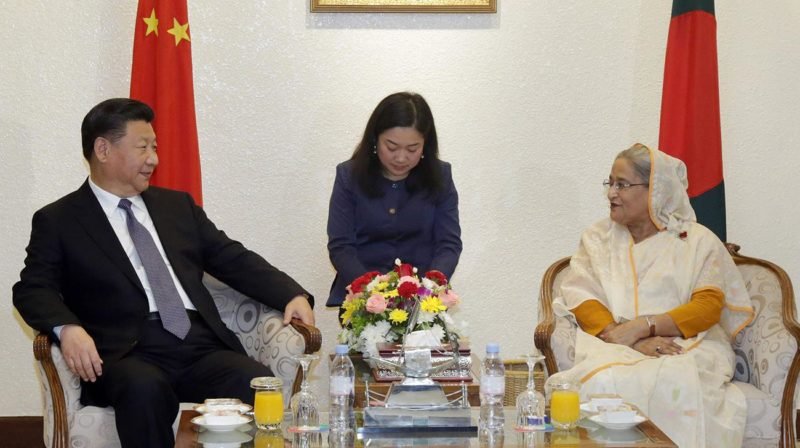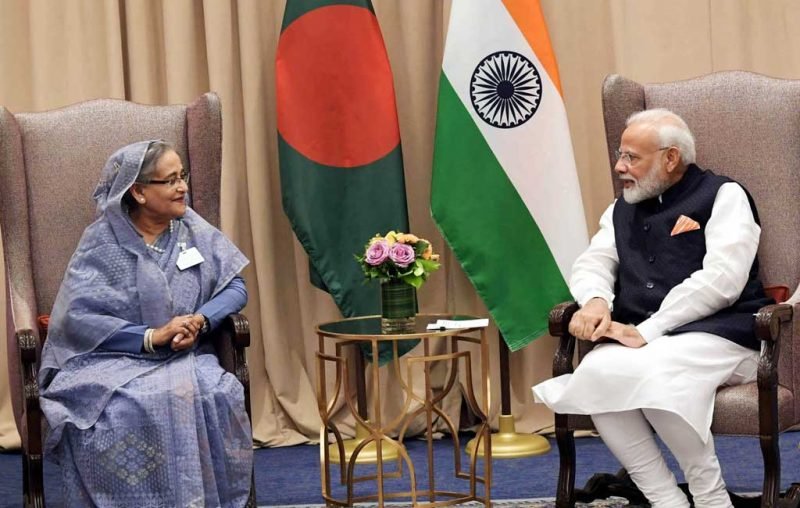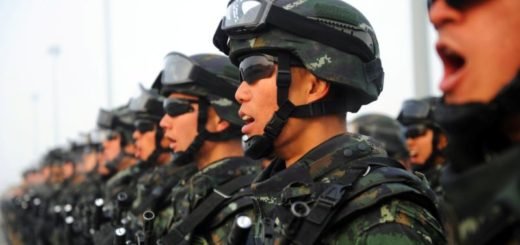Sino-Bangladesh engagement and emerging challenges for Indian foreign policy

Introduction
India’s territory, human resources and economy are comparatively larger than other South Asian countries. As a result, India has traditionally ‘influenced’ the region. India was one of the first countries to have formal diplomatic relations with Bangladesh. Moreover, India played an important role in getting Bangladesh recognized by other global powers. However, it cannot be denied that the relations between the two have been very volatile. Bangladesh became a victim of political instability only a few years after independence, as a result, undemocratic governments kept coming and going, which were not only effect Bangladesh-India relations, but also affected India’s internal security, this instability growing radical ideology in Bangladesh. The Bangladeshi military rule and then the Bangladesh National Party played an important role in the growing insurgency in the Indian North-Eastern states, but with the coming to power of the Awami League, bilateral relations gained new dimensions.
Sino-Bangladesh engagement
Sino-Bangladesh relations came into existence in 1976 as a formal diplomatic relationship. Since then, these relations have grown tremendously and at present, this relationship has become more mature politically, economically and strategically, in this episode, Xi Jinping’s visit to Dhaka in 2016 proved to be a milestone during this visit. About 27 Memorandums of Understanding were signed, most of which are related to infrastructure projects under BRI. Under this, China is going to give a loan and credit of about $ 24 billion to Bangladesh.
Many times the question arises that who is more important in India and China from the strategic point of view for Bangladesh. Responding to this, Prime Minister Sheikh Hasina herself said that China-Bangladesh relations are economic, while India is a natural friend of Bangladesh, but today China has moved ahead manifold in its bilateral affairs with Bangladesh, leaving India behind. The two countries work as strategic partners. According to the report of the Stockholm International Peace Research Institute (SIPRI), Bangladesh is dependent on China for 70% of its military hardware. China is the largest investment country in Bangladesh’s energy sector.
Indian-Bangladesh Ties in a new era
Generally, the geographical location, population, social, economic and cultural diversity of a country determine the importance of that country. Geographically, Bangladesh is close to the world’s one of the busiest sea lanes, as well as it acts as a bridge between South Asia and South-East Asia. Bangladesh is one of the fastest-growing economies in the world. Some time ago, the decision to move Bangladesh from the category of Least Developed Countries to the category of developing countries has been taken.

Bangladesh is a very important country for India’s foreign policy from the point of view of economic, political and security. In comparison, Bangladesh is a much smaller state than India, but Bangladesh is a basic state for successful implementation of India’s Act East policy, as well as Bangladesh work as a bridge to establish socio-cultural trade relations with South East Asia.
India is constantly making diplomatic efforts to counter China’s presence in Bangladesh. During Prime Minister Sheikh Hasina’s visit to Delhi in 2017, India had given Bangladesh a $4.5 billion line of credit, which is the highest ever for any country. Also, at present, a line of credit of $ 500 million has been given by India to Bangladesh for the purchase of military hardware.
The year 2021 was celebrated as the completion of 50 years of diplomatic ties by the two countries, in the same year, Prime Minister Modi chose Bangladesh for his first foreign trip after the Covid-19 crisis. During Prime Minister Modi’s visit to Bangladesh, 5 Memorandums of Understanding were signed.
Dhaka’s skilful Diplomacy
From the point of view of Bangladesh, it has used its diplomatic understanding well in the economic competition of India and China. Bangladesh is a member country of BRI, as well as Bangladesh, needs easy credit for development works, it has fulfilled this demand from Chinese sources to a large extent. It is very important to note two things here.
First, Chinese investment and development work in Bangladesh is different from other South Asian countries, where development work in Nepal, Maldives and Sri Lanka is carried out by Chinese companies only. This situation is somewhat different in Bangladesh. Bangladesh has done developmental work in its country with Chinese companies, as well as the terms of the loan agreements have been kept clear and public. Bangladesh takes decisions on Chinese investment very carefully. In the words of Prime Minister Sheikh Hasina, Bangladesh has learned a lot from Chinese investment in Sri Lanka and Djibouti. we can see that the Sonadia port Building Agreement was cancelled by Bangladesh after India raised the concern.
Conclusion
Based on the above argument, it can be said that till now a balanced approach has been adopted by Bangladesh in India-China geo-economic rivalry and it will not be an exaggeration to say that China-Bangladesh economic relations are stronger than any other country. There is a need for India to safeguard its strategic interests in Bangladesh. It is worth noting that so far no Chinese debt trap policy has been found in Bangladesh but it does not mean that something like this is not likely to happen in future.


















